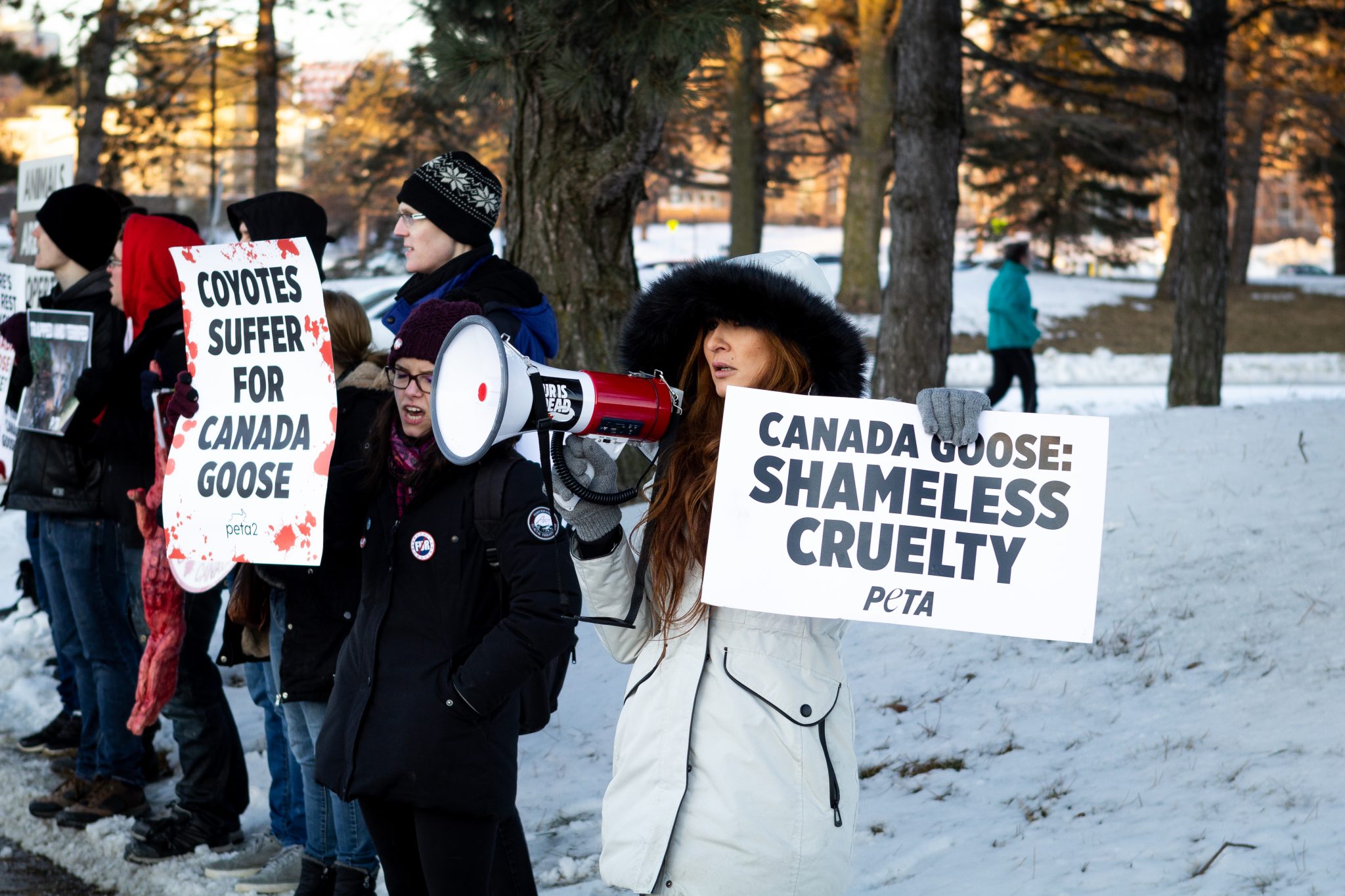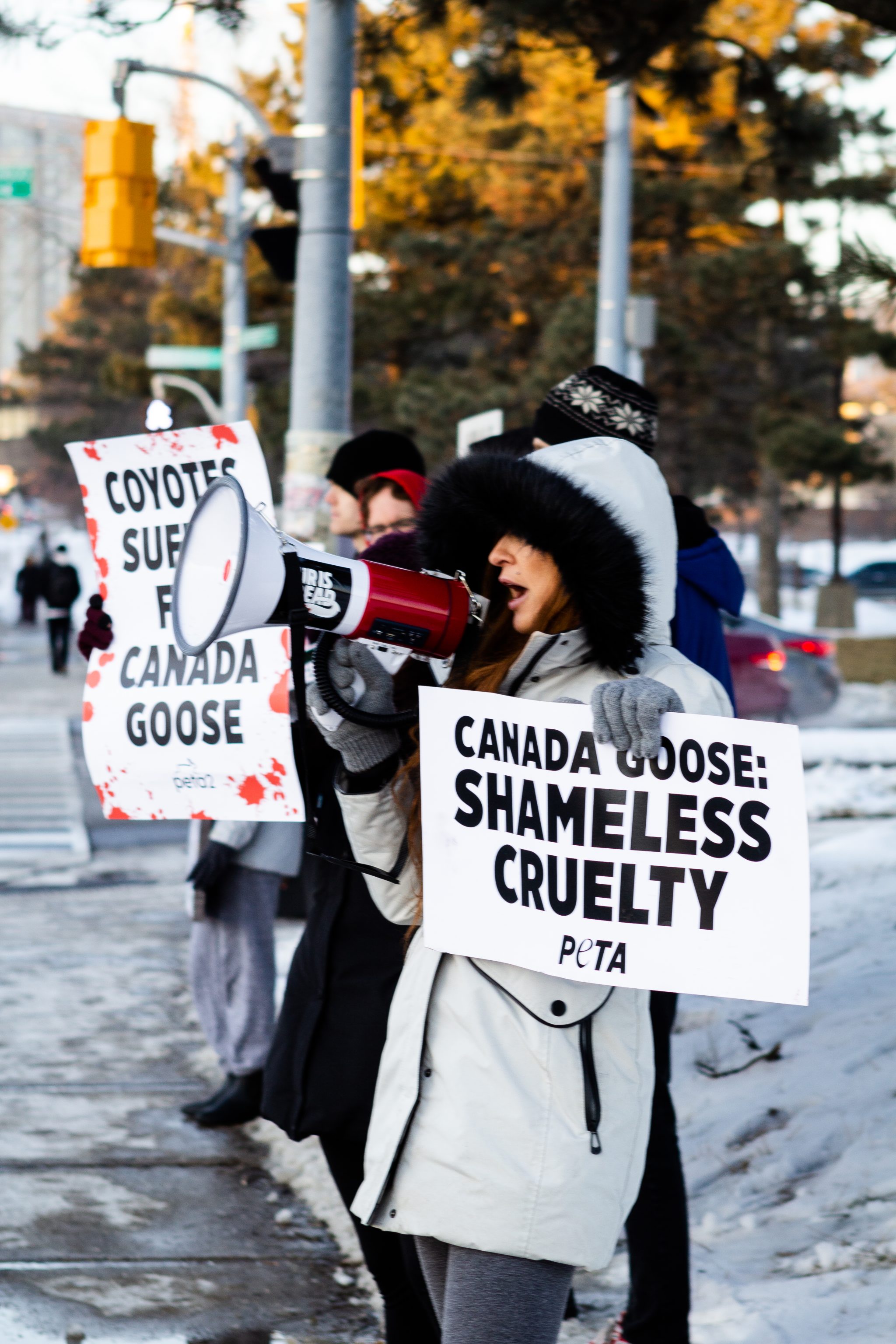Students protest against Canada Goose jackets and growing popularity in Waterloo


On the evening of Friday, Mar. 8, a group of local activists joined together at the intersection of University Avenue and Seagram Drive to rally against Canada Goose, the Canadian winter apparel brand that actively and primarily uses animal textiles for their products.
Stephanie Lennon, president of the University of Waterloo Animal Rights Society, was an organizer of this protest and was accompanied by approximately twelve other students and community activists who led the demonstration.
“Canada Goose jackets are really popular for students especially and that’s part of the Canada Goose marketing strategy – they use cognitive bias when marketing to people, and it’s encouraging people to buy these jackets because they’re so trend[y] and everyone’s doing it,” Lennon said.
Canada Goose’s most popular style of parkas and bomber jackets are made from goose down and coyote fur.
Due to the popularity of this brand, they have reserved a section of their website to address this controversial choice.
“I think people experience a great disconnect from the clothing that they’re wearing,” Lennon said.
“We really want to take a compassionate approach because we know that people buy these jackets, not realizing what they’re contributing to … I had quite a few conversations with people and they really didn’t know what these jackets were made out of.”
Lennon was pleased with the response overall as it was a productive experience engaging with people about their cause.
“In terms of outreach [at the protest], I would say that I personally spoke to around 30 people, but we also had a lot of reception from cars, honking their horns and people giving us thumbs up,” she said.
However, not all responses were encouraging. Lennon recalls instances of people yelling from their cars in a negative nature, stating things such as “animals deserve to die.”
“I think that it comes from a place of being defensive, I believe that humans inherently don’t want to cause suffering to animals,” Lennon said.
There was much constructive discussion facilitated by this event. Lennon, who studies environment, resources and sustainability at the University of Waterloo, also recalls a discussion she had with a curious student about the assumed nature of species regulation regarding coyotes and Canada Goose.
“Coyotes are a keystone species; so when they are taken out of an area, [the population of] what they are eating increases, then it goes down the trophic cascade of what those animals consume – which is herbaceous plants, which reduces the population of plant species in that area,” Lennon explained.
Lennon was pleased with the response overall as it was a productive experience engaging with people about their cause.
“We’re trying to reduce the suffering of animals wherever possible, from what we wear, to the food that we eat, the products that we use,” Lennon said.

